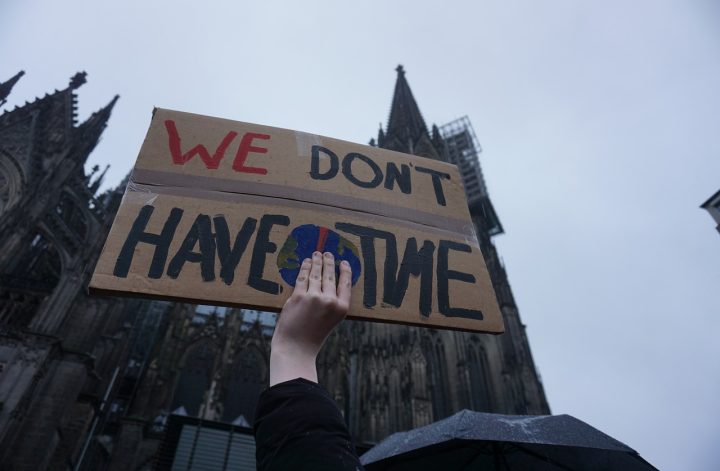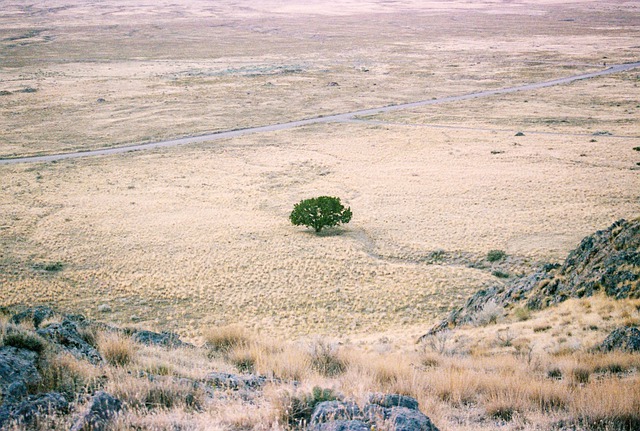The nexus between climate change and human rights is a complex and multifaceted issue. The full enjoyment of human rights depends upon the harmonious relationship between human nature and Mother Nature. We need to look at climate crises through a human rights lens and recognize our dependence on nature as air, water, food and shelter, are fundamental for all of us. Today human growing harm on land, water, and air are all changing the environment and we are feeling the impacts of changing earth’s climate and natural disasters. Changing the earth’s temperature leads to the violation of human rights through loss of access to clean air, water, food, energy, health, security, and privacy.
On 8 October 2021, the UN Human Rights Council adopted a historical Resolution that recognized a healthy environment as a universal human right because there are many countries, and this right is still out of reach. Therefore this resolution is helpful for the states to accelerate the implementation of Environmental Human Rights Obligations and Commitments. Before the resolution, more than 150 countries had already recognized the right in their constitutions. However, this resolution is the first attempt worldwide to promote rights-based climate change litigations showing the relationship between human rights and the environment. It found that climate change would affect all of us including our right to life, right to health, water, food, shelter, property, education, and the right to self-determination.
To know more about Climate Justice, read: What is Climate Justice and Why Is It Important?
Climate Crisis Is A Human Rights Crises
Climate change and human rights are interconnected. Climate change poses a significant threats to the enjoyment of human rights, as it affects various aspects of people’s lives, including their right to life, health, food, water, housing and a clean environment. There is the comprehensive international legal framework on human rights and climate change which is ratified by Pakistan, includes UDHR, ICESCR, ICCPR, UNFCCC, Paris Agreement, Kyoto Protocol, Rio Declaration, Montreal Protocol, and Vienna Convention for the Protection of Ozone Layer. [For detail: International Environmental Agreements Signed by Pakistan] These instruments ensure healthy and productive life in harmony with human rights with mother earth and concern that the government has a human rights obligation to fight climate change. Also, Chapter I of the 1973 constitution of Pakistan guaranteed Fundamentals rights to its citizens, which means every citizen of Pakistan enjoys certain rights, the right to liberty, the right to equality, and the right to self-respect.
Today Climate change is threatening lives and the full enjoyment of human rights such as the civil, political, economic, social, and cultural rights of the citizens of Pakistan. Around 33 million people are affected by extreme heat waves and devastating floods, being killed, displaced, and losing access to homes, schools, hospitals, religious places, and sanitation. Both humans and nature are victims of landslides and floods. The extreme rainfall and flash floods destroyed acres of agricultural land and livestock and increased food insecurity, malnutrition, shortage of clean water and lead nearly 8 million people displaced from their homes, which is a violation of fundamental “Rights to Life” and “Rights to Dignity” guaranteed under Article 9 and Article 14 of the 1973 constitution of Pakistan.
Want to help fight climate change? Then read 10 Simple Ways You Can Raise Awareness About Climate Change.
In Pakistan climate change is not only a matter of the Right to Life but also became a matter of all fundaments Rights, the flash floods continuously threaten the Right to Property under Article 24, Safeguard against Discrimination under Article 27, Right to Development, Right to Information under Article 19A, Right to Infrastructure, Right to Health, Right to Security or Privacy, Right to Education under Article 25A and Right to Sustainable and Cultural activities of Indigenous People under Article 28, Article 25 Equal Protection of Law and Article 38 promotion of standard of living or necessities of life guaranteed by the constitution of Pakistan. The constitutional provisions on human rights effectively contribute to tackling the negative effects of climate change on the environment and human beings.
These constitutional provisions along with international instruments on human rights and the environment collectively imposed an obligation on the government of Pakistan to respect, protect, and fulfill these rights. Therefore the government of Pakistan has both environmental and human rights obligations to fight climate change by ensuring the enjoyment of the right to life, liberty, dignity, property, information, and equal protection of the law guaranteed by the constitution of Pakistan.
Also check out: What is Climate Anxiety or Eco-Anxiety? – Causes and Effects

Efforts To Address Climate Change
Addressing climate change requires equitable and just solutions that consider the needs and rights of all individuals and communities. Here are some key efforts taken by Pakistan to address environmental crises:
• Struggles for Access to Climate Justice
The most vulnerable society regularly struggles for access to Climate justice and Pakistan is the 5th most vulnerable country in the world that is suffering most from the negative impact of climate change. Even Pakistan has only a 0.28% contribution to carbon emissions. In Pakistan, Climate Crises became Human Right Crises. The country is struggling for access to a clean, safe, healthy, and unpolluted Climate and Environment.
The COP27, the UN climate change conference in Sharm el Sheikh, Egypt highlighted the issue of climate justice and financial compensation for vulnerable countries by turning developed countries’ commitments into action toward climate change. At COP27, 9 November 2022 is celebrated as a key day for Loss and Damage finance for the implementation of many pledges and commitments made in Paris and Glasgow to finance climate change action in developing countries. This Conference called upon countries to take human rights-based climate action in line with the 1.5°C temperature target in the 2015 Paris Agreement. The Paris Agreement is the first climate treaty to explicitly recognize the relevance of human rights to climate change. This Agreement provides that states should respect, promote and consider their respective obligations to Human Rights.
Also check out: What Is Green Colonialism? – Everything You Need To Know
• Attempts to interpret Constitutional “Right to Life”
To protect and improve the environment for present and future generations is a constitutional mandate. The constitution of Pakistan contains specific provisions for environmental protection under Article 9, recognizing the fundamental right to a clean and healthy environment, water, food, air, and shelter has been interpreted by the Supreme Court of Pakistan in Shehli Zia vs WAPDA Case in 1994. Before this case, the 1973 constitution of Pakistan is an example of a constitution where environmental rights are notably absent. In the Shehli Zia case, the Court provided a broader definition of the term “Life”. The Right to Life according to the Court does not mean only mere existence from conception to death. But it means all the necessities of life which are essential for the survival of all living creatures such as clean water, air, a clean and healthy environment, food, and shelter with dignity, legally and constitutionally. Therefore Right to life means the right to live without the interference of pollution, environmental destruction, and ecological imbalance. This case established the fundamental right to an unpolluted environment together with Article 9 and Article 14 of the 1973 constitution of Pakistan.
Also read: These 11 Countries Risk Instability Due To Climate Change and Why Burden Of Saving The Environment Is On Poorer Nations?
• Attempts to use Human Rights – based Climate change Litigations
Human rights-based climate cases are growing very fast in Court targeting governments for inadequate climate mitigation and adaptation. The community members, activists, NGOs, and Public interest Lawyers’ efforts to address the impact of climate change on fundamental human rights perspective and brought cases on behalf of present, past, and future generations. The Asghar Leghari v. Federation of Pakistan of 2015 is the first human rights-based litigation that established a legal duty of the government to implement their commitments, and to prevent the dangerous effect of climate change on human rights including the Right to Life and dignity under Article 9 and 14 of 1973 constitution of Pakistan. These efforts aim to create legal precedents, increase awareness, and push for policy changes that prioritize climate action and safeguard the rights of the young people and future generations.
Know more about Environmental Injustice: Environment Discrimination and the Importance of Environmental Justice
Recommendations
Recognizing climate change both an environmental and a human rights issue is crucial for understanding its far-reaching impacts and the need for urgent action. While climate change has direct consequences on the human rights, such as rising temperatures, and extreme weather events cause social and economic inequalities, effecting marginalized communities and vulnerable populations. Hence, the efforts to address climate change should be guided by a human rights-based approach, integrating principles of non-discrimination, participation, transparency, and accountability. International frameworks, such Paris Agreement and the Sustainable Development Goals, along with constitutional provisions, recognize the interdependence of climate action and human rights, aiming to promote sustainable development while safeguarding human rights for all.
Also check out: What is Climate Change Adaptation? – Importance and Methods
Conclusion
To conclude that the constitutional provisions on human rights along with international human rights law and environmental law provide legally binding obligations that can use to demand effective climate change policies and measures. Therefore, in the context of climate change, the government of Pakistan is required to take two actions to deal with climate change namely adaptation and mitigation, to ease the adverse effect of climate change on the enjoyment of the right to life, liberty, dignity, property, information, and equal protection of the law guaranteed by the constitution of Pakistan.
Also check out: Climate Despair – A Scheme By Corporations To Hinder Action?
References
1. Constitution of Islamic Republic of Pakistan 1973
2. Shehla Zia v. WAPDA, PLD [1994] SC 693
3. Asghar Leghari v. Federation of Pakistan, PLD [2018] Lahore 364
4. ‘Climate change litigation update’ (Norton Rose Fulbright | Germany | Global law firm) <www.nortonrosefulbright.com/en-pk/knowledge/publications/0c9b154a/climate-change-litigation-update> accessed 18 June 2023
5. UN Human Rights Council, Human Right Council Resolution 48/13/Adopted by the UN Human Rights Council, 8 Oct 2021
6. ‘COP27 Reaches Breakthrough Agreement on New “Loss and Damage” Fund for Vulnerable Countries | UNFCCC’ (UNFCCC) <https://unfccc.int/news/cop27-reaches-breakthrough-agreement-on-new-loss-and-damage-fund-for-vulnerable-countries> accessed 18 June 2023
This article was contributed by Nosheen Jahan. Nosheen is an undergraduate law student at Kinnaird College for Woman University Lahore. She is a passionate campaigner and working for Animals rights protection and Environmental Rights Protection in Pakistan. Her mission is to build people’s power in vulnerable communities to achieve environmental health and justice by preventing and reducing pollution and building green, healthy, sustainable and peaceful communities and environments. She has been a former Legal Intern at Pakistan Center of Legal Research and Publication (PCLRP). Her work has been published by PCL Student Journal of Law. She has been also recognized as a UNLEASH Talent for her contributions to SDG 13, SDG 14 and SDG 15. Her area of interest includes: Environmental justice, Human Rights, Gender Issues in Law, Animal jurisprudence, Constitutional law, Climate Justice and International law.
You might also like to read: Urgency of Climate Justice for Mountain Communities of Pakistan
We hope you liked this post! Please comment below if you have any suggestions, comments or feedbacks! We at #envpk love hearing from readers! Thanks!





1 Comment
A detailed article on Climate change viz a viz Human Rights violation.